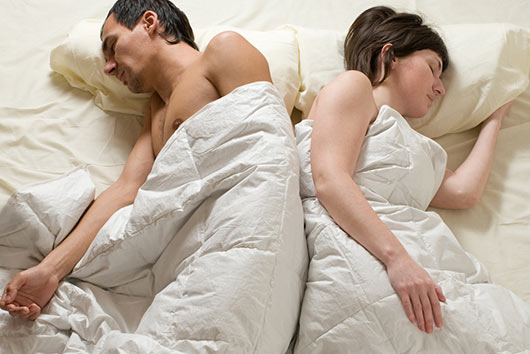
3. Eat to help you sleep.
Wait, what? We know, it’s crazy but it’s true! Experts say you should avoid fruits high in fructose before bedtime (though bananas and tart cherries are said to be okay as they actually support sleep). The breakdown of fructose can cause blood sugar levels to spike, creating false hunger or thirst pangs during the night. The best sleep foods are complex carbohydrates and proteins because they can boost serotonin levels and promote relaxation. Plus, they’re easier on the digestive tract in the later hours of the day. Complex carbs include: whole grains, oats, barley, rice and legumes (like beans or lentils). In general, lower glycemic foods and those high in tryptophan, like chicken, turkey, almonds, sesame seeds, pumpkin seeds, eggs, milk and hummus, are notorious sleep inducers. Bon appetit!
4. Read the labels on your medication!
Many prescription and over-the-counter pharmaceuticals contain ingredients that can keep you up at night. For example, stimulants like pseudoephedrine and caffeine are commonly found in cold, allergy, and sinus medication.
Read Related: Yoga for Insomniacs












